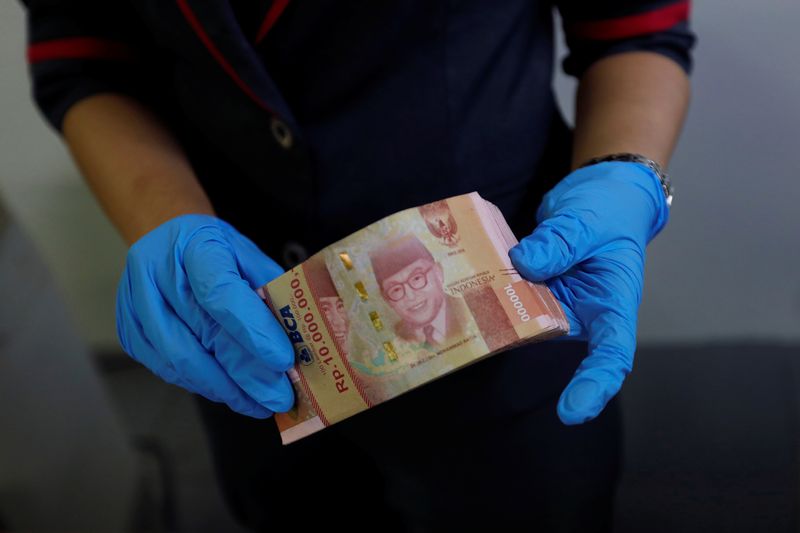JAKARTA (Reuters) -Indonesia's foreign exchange reserves fell the most in a month since the start of the pandemic, Bank Indonesia (BI) data showed on Friday, as the central bank pledged to intervene in the foreign exchange market to ward off imported inflation.
Reserves dropped by $4.2 billion in July to $132.2 billion due to payments of public debt and the central bank's currency intervention measures, BI said in a statement.
That was the biggest fall since March 2020, when reserves plummeted by $9.4 billion.
The reserve level was equal to imports for 6.2 months, above an international standard of 3 months, and was adequate to maintain Indonesia's external and financial system stability, BI said. The level was the lowest since June 2020.
Reserve level may rise in the remainder of the year, a BI official said, with capital inflows returning to debt and equity markets and potential additional reserves coming from trade surpluses and government offshore bond issuance plans in the second half of 2022.
"Going forward, I see that FX reserves will be very secure," Edi Susianto, BI's head of monetary management department, told Reuters in a text message.
Governor Perry Warjiyo has said BI has been intervening in currency markets to manage the impact of the rupiah's depreciation on domestic inflation, but he said it was not targeting any specific exchange rate level.
Indonesia's inflation rose to 4.94% last month, the highest in seven years.
Like other emerging market currencies, the rupiah has weakened against the U.S. dollar amid global monetary tightening.

However, down more than 4% so far this year, it is among emerging Asia's best performing currencies, as domestic dollar supply got a boost from high export earnings.
Asia FX reserves saw their biggest six-month decline in years in 2022's first half, demonstrating policymakers' determination to defend currencies facing pressured by a strong U.S. dollar.